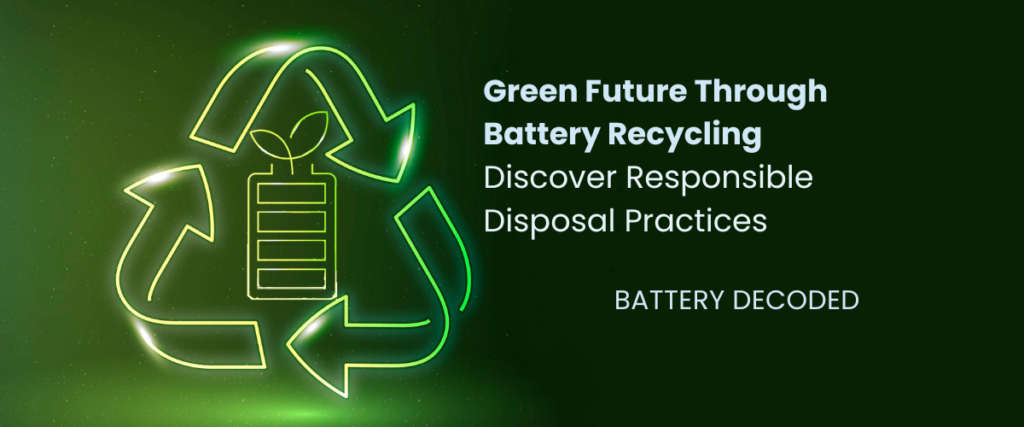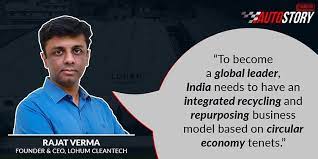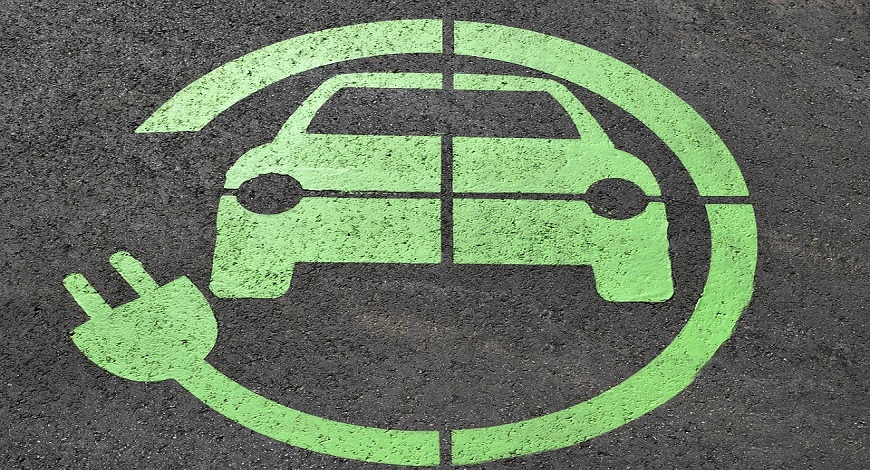
Batteries have grown as a driving technology of our lives, powering every range of devices ranging from smartphones to EVs. However, the rapid growth in battery usage has led to increasing concerns about their environmental impact. Battery recycling has emerged as a pivotal solution, not only for mitigating environmental harm but also for harnessing substantial economic advantages.
After our previous article on the environmental and social benefits of battery recycling, this edition of LOHUM’s series on simplifying batteries and battery recycling, #BatteryDecoded, delves deeper into the economic benefits of battery recycling. Let’s shed some light on how battery recycling can effectively transform waste into valuable resources capable of uplifting the economy while securing energy security for all.
Batteries present a formidable environmental challenge due to their composition of toxic and non-biodegradable materials. These materials, which include metals like Cobalt, Nickel, and Lithium, possess the potential to leach into soil and water, especially if not disposed of correctly. The improper disposal of batteries in landfills or incineration can result in soil contamination, air pollution, and other grave ecological consequences. Battery recycling offers a viable solution by diverting these hazardous materials from landfills and reusing valuable components in a sustainable manner consistent with the goals of a closed-loop circular economy.
We previously covered the importance of energy transition materials, and why high-yield battery recycling and high-purity material refining technology are critical to the sustainability of the battery ecosystem, and as of today, various lithium ion battery recycling technologies have reached efficiencies to the last 90 percentages. This makes it virtually possible to infinitely recycle battery raw materials, a scenario-changing possibility for humans to harness more energy than ever in sustainable ways, and propel the completion of our shared developmental goals.
Battery recycling is a process that involves extracting valuable materials from used batteries, which can subsequently be repurposed for the production of new batteries or even for other industries, hence the wider term, ‘energy transition’. For example, lithium-ion batteries, commonly found in electronic gadgets and electric vehicles, contain precious metals like lithium, cobalt, nickel, and manganese. These metals are in high demand for various applications, ranging from manufacturing batteries and electronics to advanced aerospace technologies and military equipment.
Battery recycling serves as a critical approach to conserving valuable resources. By reusing materials from old batteries, the demand for virgin resources is reduced, thereby lowering the need for resource-intensive and often ecologically damaging mining operations. By preserving resources, battery recycling contributes to a more sustainable supply chain for these valuable materials, while lowering prices across the ecosystem as a result of meeting demand better.
Appropriate disposal of batteries can be financially burdensome due to their hazardous nature. Battery recycling effectively tackles this challenge by diverting batteries from landfills. As a result, the potential environmental damage and the accompanying cleanup expenses are minimized, leading to a reduction in waste management costs.
The establishment and operation of battery recycling facilities necessitate a skilled workforce for tasks such as disassembly, material extraction, and quality control. The growth of the recycling industry brings about job opportunities, fostering economic growth and stability within local communities.
Recycling batteries enables the recovery of valuable energy transition materials such as precious metals and rare earth elements. These materials can be sold to manufacturers, offering an additional revenue stream for recycling facilities. Moreover, the recycling of these materials reduces the need for expensive and environmentally detrimental mining activities.
Numerous regions are introducing regulations and incentives to encourage battery recycling. Extended Producer Responsibility (EPR) programs make battery manufacturers responsible for managing the recycling and safe disposal of their end-of-life products. Such regulations not only foster proper recycling practices but also create a structured framework for reaping economic benefits.
While battery recycling holds immense promise, certain challenges need to be addressed. The diverse and complex nature of batteries makes the recycling process technically demanding. Additionally, market prices of some recovered materials like lithium and cobalt can be volatile, influencing the overall economic feasibility of recycling.
To maximize the economic advantages of battery recycling, intensive ongoing research and technological advancements are crucial. Innovations in battery design for improved recyclability, efficient methods for material separation, and enhanced techniques for material recovery all contribute to making recycling more economically attractive and environmentally sound.
As LOHUM hosts almost every aspect of the energy transition value chain under one roof, the energy transition materials company is driving down the CO2e, monetary, and humanitarian costs of making lithium ion batteries.
In LOHUM’s end-to-end battery lifecycle management model, recycling encompasses both recycling and reuse/repurposing, which is driven by accurate testing-driven battery residual valuation. This enables us to unlock the maximum possible value, life, and utility of battery assets.
LOHUM’s DETX™, or ” Delhi Energy Transition Exchange™ ” battery price index makes it easy to determine accurate prices of battery materials and provides ‘future’ buyback prices in a volatile ecosystem, serving as a reliable, verifiable, and weighted market standard to rally all ecosystem stakeholders.
LOHUM is an authorized BWMR-registered Extended Producer Responsibility (EPR) partner, and we assist lithium ion battery ecosystem stakeholders with all aspects of EPR from CPCB registration to all other regulatory compliances like meeting collection targets backed by EPR certificates that serve as proof of recycling.
Over the last four years, we have created the technology and infrastructure to recycle and refine 2 GWh and Repurpose 300 MWh of battery capacity per annum. That equals enough battery materials via urban mining to potentially power over 50,000 EV sedans every year. LOHUM is on course to grow our capacity with a fourth facility in Greater Noida and battery scrap intake spokes all across India and the world.
Battery recycling stands as a prime example of how sustainability and economic viability can harmoniously coexist. By transforming waste into valuable resources through battery recycling, we not only mitigate environmental harm but also contribute to various aspects of economic growth with sustainability. Thanks to the infinite recyclability of battery raw materials, lithium ion battery recycling stands as a virtually infinite source of revenue, energy security, and long-term value creation.
Stay tuned to LOHUM’s series on simplifying batteries- #BatteryDecoded, on our LinkedIn page for more insightful content on battery recycling, sustainable energy storage, energy transition, circular economy, battery repurposing, and more!

Forbes India
Rajat Verma already recovers raw materials from used cells at his venture, Lohum Cleantech. He wants to close the loop by making cells in India as well.

YOURSTORY
In an interaction with AutoStory, Rajat Verma, Founder and CEO of Lohum Cleantech, speaks about building his company, and about battery manufacturing and repurposing as an industry.

Business World Disrupt
Recognized as ‘The Most Innovative Company of the year 2022’ by The Confederation of Indian Industry (CII), Lohum is a producer of sustainable Li-ion battery raw materials
1800 572 8822
Email : enquiry@lohum.com
G98, Site, 5, Kasna, Block A, Surajpur Site V, Greater Noida, Uttar Pradesh 201306
Lohum Cleantech Private Limited, Plot No. D-7 & 8, Site 5th, Kasna Industrial Area, Greater Noida, Gautam Budh Nagar, Uttar Pradesh – 201308
Lohum Cleantech Private Limited, Plot No. O-17, Site 5th, Kasna Industrial Area, Greater Noida, Gautam Budh Nagar, Uttar Pradesh – 201308